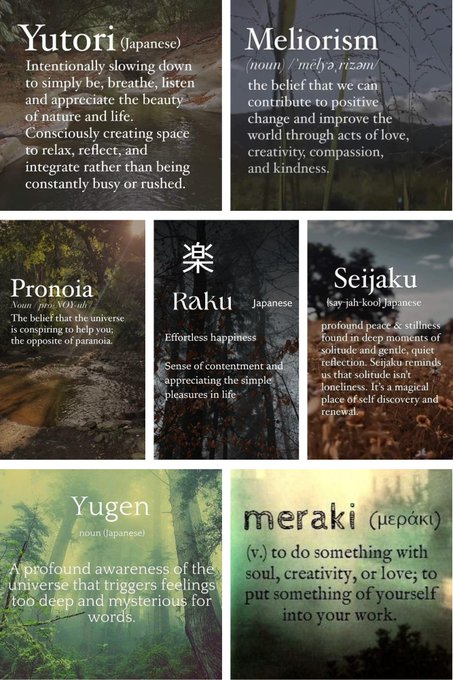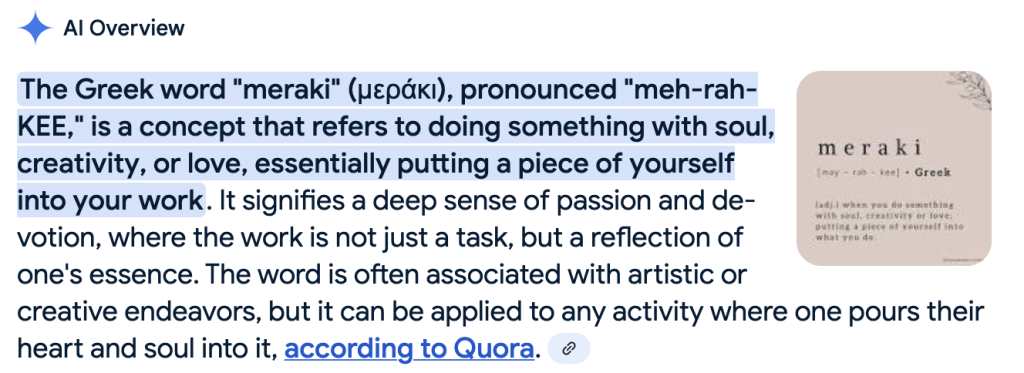
Yugen: Etymology: Made up of two Japanese characters. The first, “yu,” means dim or difficult to see. The second, “gen,” originally described the dark, tranquil color of the universe—something calm and deep.

What’s most interesting to me about this word, is that it has no known analogue in English.
Here’s a list of untranslatable Japanese words:
https://avo-translations.co.uk/23-untranslatable-japanese-words-with-beautiful-meanings
In this list, “yugen” is #14.

Too big to comprehend. Yes. There are such “things.” Though (material) things are not included!
What comes to mind for me is the day I was standing by our beautiful pond (no longer a pond, alas, but a wetlands, having been taken over by some kind of bamboo, thanks probably, to birds.)
Standing there, eyes unfocused, drinking in the beauty of the pond, all of a sudden a mysterious, powerful force rose up from below and nearly knocked me off my feet. Not yugen, but something. What?
That our pond no longer is one, I’m reminded of yugen, which itself signifies the temporary, what is passing. . .
Or as Alan Watts put it: yugen means “digging change”! Also: “Openness. Something your spirit goes out into, and has nowhere to land. The trick is, to evoke the mood of yugen, a sort of mysterious suggestiveness.” Wonderful video.
Yugen welcomes me when I gaze at the night sky. Or when I gaze at sun-dappled leaves waving in the breeze, or passing clouds playing peek-a-boo with the Moon. Or when I simply stop, filled with gratitude, at the continuous, ever-changing aliveness within which my evanescent embodied being is immersed.
That there is no English equivalent to this word saddens me.
BTW: It may be that this word was originally Chinese!

Meraki: etymology: Here’s a post that says it literally means “essence of ourselves.”

Looking at the “ki” part of the word, I’m reminded of tai chi (tai ki, or tai qi), as described here:

Vital energy flowing through the “essence of the self.”
Meraki is what I cannot help but utilize when I write, and when I view other people’s writings. To me, the essence of the person’s life force usually shows up in the beginning of a published work. If its first sentence doesn’t contain that subtle personal dynamic, that unique, vibrant identifier, then likely, for me, that document is not worth my time.

